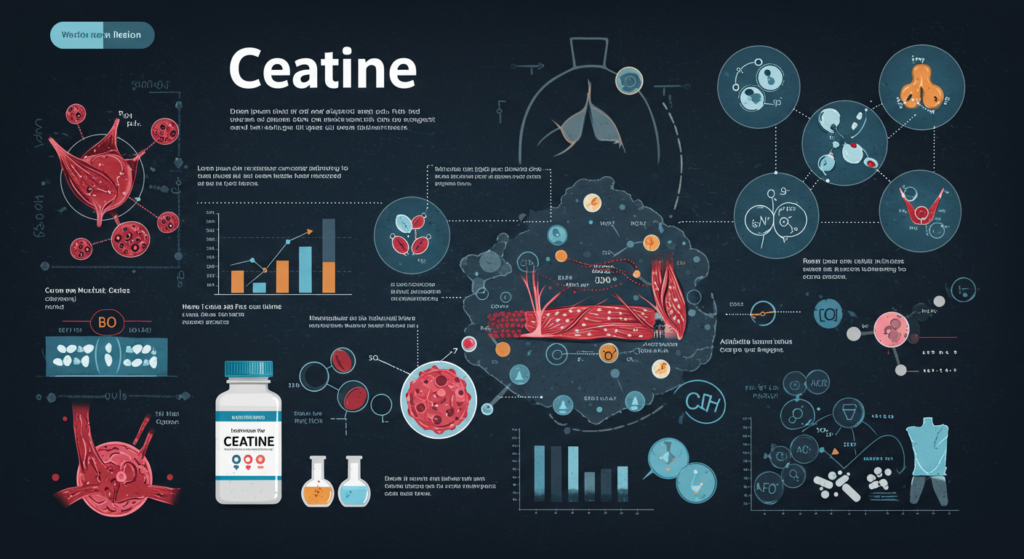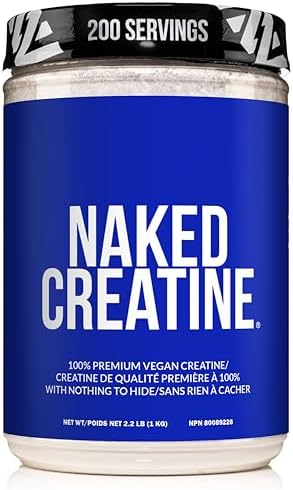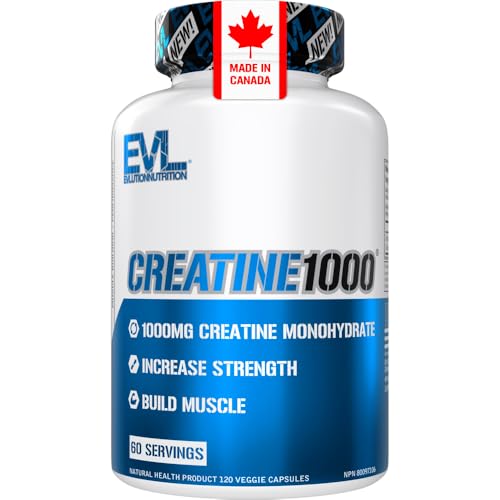
Creatine supplementation has long been associated with enhanced athletic performance, but its benefits extend far beyond the gym. Recent research has uncovered a wealth of advantages that impact overall wellness, cognitive function, and even disease prevention.
As a naturally occurring substance in the body and in protein-rich foods, creatine can also be taken as a supplement to support overall health. With its potential to improve muscle strength, cognitive function, and metabolic efficiency, it’s no wonder that creatine supplementation is gaining attention beyond fitness circles.
Key Takeaways
- Discover the science-backed benefits of creatine supplementation for overall wellness.
- Learn how creatine supports brain health and cognitive function.
- Understand the role of creatine in metabolic efficiency and cardiovascular support.
- Explore the potential therapeutic applications of creatine for various health conditions.
- Find out how creatine can support healthy aging and overall wellbeing.
What is Creatine? Understanding the Basics
For those unfamiliar with the term, creatine is a naturally occurring compound that plays a crucial role in energy production within the body. It is a substance that has been widely researched and has gained popularity among athletes and fitness enthusiasts due to its ability to enhance physical performance.
Creatine is not just something you might find in a supplement; it’s naturally present in your body and in certain foods. About half of your body’s supply of creatine comes from your diet, especially from protein-rich foods such as red meat, seafood, and animal milk. The other half is produced naturally in your liver, kidneys, and pancreas.
The Science Behind Creatine
Creatine works by increasing the amount of phosphocreatine in your muscles. Phosphocreatine is used to replenish ATP (adenosine triphosphate), the energy currency of the muscle cells. When you engage in high-intensity activities, your ATP stores are rapidly depleted. Creatine supplementation helps to replenish these stores, allowing for more intense and longer-lasting workouts.
The science behind creatine is well-established. Research has shown that creatine monohydrate is the most effective form of creatine supplementation, with hundreds of studies supporting its efficacy and safety.
Natural Sources vs. Supplementation
While your body naturally synthesizes about half of the creatine it needs, the other half typically comes from dietary sources. Primarily, these sources are animal products like meat, fish, and dairy. However, vegetarians and vegans often have significantly lower creatine stores, making supplementation potentially more beneficial for these populations.
| Dietary Source | Creatine Content (approx.) |
|---|---|
| Red Meat (per 3 oz serving) | 1-2 grams |
| Seafood (per 3 oz serving) | 0.5-1 gram |
| Animal Milk (per cup) | 0.1-0.3 grams |
The typical supplementation protocol involves either a loading phase followed by a maintenance phase or simply taking a consistent daily dose. For general health purposes, consuming at least 3g of creatine daily is considered beneficial for maintaining optimal creatine stores in the body.
Creatine’s Role in Cellular Energy Production
Understanding creatine’s role in cellular energy is essential for appreciating its benefits beyond the realm of physical performance. At its core, creatine supplementation influences how cells produce and utilize energy, particularly during periods of high demand.
ATP (adenosine triphosphate) is the universal energy currency in your body, powering virtually every cellular process from muscle contractions to brain function and cellular repair. However, your body can only store limited amounts of ATP at any given time, making efficient ATP regeneration systems crucial for sustained energy production and cellular function.
The Phosphocreatine Energy System
Creatine plays a pivotal role in what scientists call the “creatine phosphate shuttle,” which efficiently moves energy from production sites in the mitochondria to areas in the cell where energy is needed. This system is particularly important in tissues with fluctuating energy demands, such as muscle during exercise, or constant high energy needs, like the brain and heart.
During intense exercise or periods of high energy demand, the phosphocreatine energy system is activated to rapidly replenish ATP stores. This process is crucial for maintaining peak physical performance and preventing fatigue.
“The phosphocreatine kinase reaction is a critical mechanism for buffering ATP levels during high-energy demand states, ensuring that muscle cells can maintain contractile function.”
How Creatine Supports ATP Production
Creatine supplementation enhances the body’s ability to maintain ATP levels by increasing the amount of phosphocreatine available for the phosphocreatine kinase reaction. This is particularly beneficial during high-intensity activities where ATP depletion can occur rapidly.
| Energy System | Primary Function | Role of Creatine |
|---|---|---|
| Phosphocreatine Energy System | Rapidly replenishes ATP stores during high-intensity efforts | Enhances phosphocreatine availability for ATP regeneration |
| ATP Production | Provides immediate energy for cellular processes | Supports the maintenance of ATP levels through the phosphocreatine kinase reaction |
By supporting ATP production, creatine supplementation not only improves physical performance but also contributes to overall cellular health and function. This is especially significant in contexts where energy demand is high or energy production is compromised.
In conclusion, creatine’s role in cellular energy production is multifaceted, supporting both immediate energy needs and long-term cellular health. Through its involvement in the phosphocreatine energy system and support of ATP production, creatine supplementation offers benefits that extend far beyond enhanced physical performance.
Debunking Common Creatine Myths
Creatine, a supplement widely used by athletes and fitness enthusiasts, has been the subject of numerous myths that have persisted despite scientific evidence to the contrary. As we dive into the world of creatine supplementation, it’s essential to separate fact from fiction and understand the truth behind these common misconceptions.
Is Creatine a Steroid?
One of the most pervasive myths about creatine is that it’s a steroid. However, this couldn’t be further from the truth. Creatine is a naturally occurring substance found in the body and in certain foods, and its supplementation is designed to increase muscle creatine levels, not to introduce synthetic hormones into the body. Unlike steroids, creatine works by enhancing the body’s natural energy production mechanisms, not by altering hormone levels.
Addressing Safety Concerns
Safety concerns surrounding creatine often center on its potential impact on the kidneys. However, numerous studies have shown that creatine supplementation does not harm kidney function in healthy individuals. In fact, a comprehensive review of research on creatine found no evidence to support the claim that it causes kidney damage.
To better understand the effects of creatine, let’s examine some key findings:
| Study Duration | Daily Dose | Key Findings |
|---|---|---|
| Up to 5 years | 5 grams | No detrimental effects on kidney or liver function |
| Short-term | 20 grams (loading phase) | Temporary weight gain due to water retention |
| Long-term | 3-5 grams | Improved strength and endurance with no serious side effects |
While some users may experience minor side effects such as stomach upset or muscle cramps, these are generally mitigated by proper hydration and dosing. It’s also worth noting that certain populations, such as those with pre-existing kidney disease, should consult with a healthcare professional before starting creatine supplementation.
In conclusion, the overwhelming scientific consensus supports the safety and efficacy of creatine supplementation for healthy individuals. By understanding the facts and dispelling common myths, we can harness the benefits of creatine to enhance our fitness journeys and overall well-being.
Creatine Health Benefits Beyond Muscle Building
Beyond its popularity among athletes, creatine has been found to have numerous health benefits that contribute to overall wellness. While it’s well-known for enhancing athletic performance, creatine supplementation has been researched for its broader impacts on health.

Metabolic Benefits
Creatine supplementation has been associated with various metabolic benefits. Research indicates that it can help manage blood lipid levels, contributing to overall cardiovascular health. By potentially lowering cholesterol and triglycerides, creatine supports a healthier metabolic profile.
This metabolic support is crucial for maintaining energy balance and reducing the risk of metabolic disorders. As part of a comprehensive health regimen, creatine may play a role in enhancing metabolic function.
Anti-Inflammatory and Antioxidant Properties
In addition to its metabolic benefits, creatine has been found to possess anti-inflammatory and antioxidant properties. These characteristics are significant for overall health, as they can help mitigate oxidative stress and inflammation, factors associated with various chronic diseases.
By potentially reducing inflammation and oxidative stress, creatine supplementation may contribute to a healthier cellular environment, supporting overall well-being.
Cardiovascular Health Support
The heart, being one of the most metabolically active organs, relies heavily on efficient energy production. Creatine plays a crucial role in this process, and research suggests that creatine supplementation may improve cardiac function, particularly in individuals with heart failure.
- The heart contains significant amounts of creatine, highlighting its importance in cardiac energy production.
- Studies have shown that creatine can help lower homocysteine levels, reducing the risk of cardiovascular disease.
- Creatine’s positive effects on blood lipid profiles further support its potential cardiovascular benefits.
- For individuals in cardiac rehabilitation, creatine supplementation may enhance exercise capacity and improve quality of life.
These findings underscore the potential of creatine to support heart health and overall cardiovascular function. As research continues to uncover the benefits of creatine, its role in a holistic approach to health becomes increasingly evident.
Creatine for Brain Health and Cognitive Function
Beyond its well-documented role in muscle energy production, creatine may also play a crucial part in supporting brain health and cognitive processes. Recent studies have explored the potential benefits of creatine supplementation on brain function, revealing promising results.
Neuroprotective Effects
Creatine supplementation has been investigated for its potential neuroprotective effects. Research suggests that creatine may help protect the brain against various forms of stress and injury. Studies have shown that creatine can reduce oxidative stress and inflammation, both of which are associated with neurodegenerative diseases.
The neuroprotective properties of creatine are thought to be linked to its ability to maintain cellular energy homeostasis. By supporting the phosphocreatine kinase system, creatine supplementation may help ensure that brain cells have a stable energy supply, even under conditions of high demand or stress.
Cognitive Performance Enhancement
In addition to its neuroprotective effects, creatine supplementation has been shown to enhance various aspects of cognitive performance. Multiple studies have demonstrated improvements in working memory, processing speed, and executive function following creatine supplementation.
These cognitive benefits are particularly pronounced in individuals performing tasks that induce mental fatigue. For example, creatine supplementation has been found to reduce mental fatigue and improve performance during repetitive mathematical calculations. Such findings suggest that creatine may be beneficial for individuals seeking to optimize their mental performance, including students, professionals, and older adults experiencing age-related cognitive decline.
Overall, the available evidence suggests that creatine supplementation may offer a simple yet effective strategy for supporting brain health and enhancing cognitive function. As research in this area continues to evolve, it is likely that we will gain a deeper understanding of the potential benefits and applications of creatine for brain health.
Creatine and Healthy Aging
The process of aging is associated with various physiological changes, including declines in muscle mass and bone density, which creatine supplementation can help mitigate. As people age, maintaining physical function and overall health becomes increasingly important. Creatine supplementation, combined with appropriate exercise and nutrition, may offer a valuable strategy for promoting healthy aging.
Combating Age-Related Muscle Loss
Age-related muscle loss, or sarcopenia, is a significant concern for older adults, as it can lead to frailty, decreased mobility, and increased risk of falls. Creatine supplementation has been shown to help combat sarcopenia by enhancing muscle strength and endurance. When combined with resistance training, creatine can help older adults maintain muscle mass and function.
A study on creatine supplementation during resistance training found significant improvements in muscle strength among older adults. This is crucial because increased muscle strength can improve overall mobility and reduce the risk of age-related injuries.
Bone Health and Osteoporosis Prevention
Bone health is another critical aspect of healthy aging, as bone density naturally decreases with age. Creatine supplementation may benefit bone health by enhancing the effects of resistance training on bone mineral density. Research has indicated that postmenopausal women who took creatine during a resistance training program experienced greater improvements in bone mineral density compared to those who did not take creatine.
The potential mechanisms by which creatine supports bone health include enhancing the activity of bone-building cells (osteoblasts) and reducing the activity of bone-resorbing cells (osteoclasts). This creates a more favorable environment for bone maintenance and may help prevent osteoporosis.
| Study Group | Change in Bone Mineral Density | Change in Muscle Strength |
|---|---|---|
| Resistance Training Alone | +2% | +15% |
| Resistance Training + Creatine | +5% | +25% |

For aging individuals concerned about osteoporosis and fracture risk, combining creatine supplementation with resistance training and adequate calcium and vitamin D intake may provide a comprehensive approach to maintaining bone health. This multifaceted strategy addresses both the muscular and skeletal aspects of overall health.
Therapeutic Applications of Creatine Supplementation
Creatine is not just for athletes; its supplementation is being investigated for various therapeutic applications that could enhance overall health. Recent studies have expanded our understanding of creatine’s potential benefits, revealing its promise in managing and treating several health conditions.
The versatility of creatine supplementation is becoming increasingly evident as research uncovers its effects on different bodily systems. From neurological disorders to metabolic conditions and heart disease, creatine’s therapeutic potential is vast and varied.
Neurological Disorders
Creatine supplementation has been studied for its potential benefits in managing neurological disorders. Research suggests that creatine may help in neuroprotection, potentially slowing down the progression of neurodegenerative diseases. Its role in enhancing energy supply to neurons could be crucial in conditions where energy metabolism is compromised.
Studies have indicated that creatine may have a positive impact on certain neurodegenerative diseases by improving cellular energy levels and reducing oxidative stress. This makes it a subject of interest for further research into its neuroprotective effects.
Managing Metabolic Conditions
Creatine supplementation may also play a role in managing metabolic conditions. By enhancing muscle energy metabolism, creatine could potentially improve insulin sensitivity and glucose metabolism. This is particularly relevant for individuals with type 2 diabetes or those at risk of developing metabolic syndrome.
Research in this area is ongoing, but the available evidence suggests that creatine supplementation could be a valuable adjunct to conventional treatments for metabolic conditions, helping to improve overall metabolic health.
Potential Benefits for Heart Disease
Heart disease remains one of the leading causes of death worldwide, and research suggests that creatine supplementation may offer several cardioprotective benefits. Studies have shown that creatine can improve cardiac function in certain populations, particularly those with heart failure, by enhancing the heart’s energy efficiency and contractile function.
Several key findings support the potential benefits of creatine for heart health:
- Creatine supplementation may improve left ventricular ejection fraction and exercise capacity in heart failure patients.
- It has been shown to lower homocysteine levels, an independent risk factor for cardiovascular disease.
- Creatine may help protect heart cells during ischemic events by maintaining cellular energy levels and reducing oxidative damage.
- For individuals in cardiac rehabilitation programs, creatine supplementation may enhance exercise tolerance and recovery.
These findings suggest that creatine supplementation could be a valuable adjunctive therapy for heart disease patients when used under medical supervision alongside conventional treatments.
In conclusion, the therapeutic applications of creatine supplementation extend far beyond its use in athletic performance. With its potential benefits in neurological disorders, metabolic conditions, and heart disease, creatine is emerging as a versatile supplement that could play a significant role in enhancing overall health and wellness.
Holistic Creatine Supplementation Strategies

To maximize the benefits of creatine, it’s essential to understand the optimal strategies for supplementation. Creatine supplementation has been widely researched, and when done correctly, it can significantly enhance overall health and wellness.
Creatine monohydrate is the most studied form of creatine, and its efficacy is well-documented. For individuals looking to improve their overall health, understanding the optimal dosing protocols is crucial.
Optimal Dosing Protocols
The standard dosing protocol for creatine involves an initial loading phase followed by a maintenance phase. During the loading phase, typically 20 grams of creatine is taken daily for 5-7 days. This is usually followed by a maintenance dose of 3-5 grams per day.
Consistency is key when it comes to creatine supplementation. Taking creatine at the same time every day helps maintain elevated creatine stores in the muscles.
For those using creatine for general health benefits, a daily dose of 3-5 grams is recommended. This dosage has been shown to be effective in maintaining muscle creatine levels.
Timing and Cycling Considerations
The timing of creatine supplementation has been a topic of debate. Some studies suggest that taking creatine post-workout may be slightly more effective than pre-workout. However, the differences are minimal, and consistency is more important than the specific timing.
For convenience and adherence, finding a consistent time that works with your daily routine is more important than stressing over optimal timing. Whether you take creatine in the morning, pre-workout, post-workout, or in the evening, the key is to take it daily.
Regarding cycling, research does not support the need for cycling in healthy individuals. Long-term studies have shown no negative effects from continuous use at recommended doses. For those using creatine for general health benefits, consistent daily intake without cycling appears to be the most effective approach.
Who Can Benefit Most from Creatine?
Creatine supplementation is a versatile tool that can benefit a wide range of individuals, from athletes to older adults looking to improve their overall health. While it’s well-known for its effects on muscle and strength, its benefits extend to various demographics.
The versatility of creatine supplementation lies in its ability to support different health and fitness goals. For instance, it can be particularly beneficial for women and older adults, who may face unique physiological challenges.
Benefits for Women
Women can derive significant benefits from creatine supplementation, particularly in terms of muscle mass and strength. Research has shown that creatine can help women improve their overall muscle function and endurance, making it a valuable addition to their fitness regimen.
- Creatine can enhance muscle performance during high-intensity activities.
- It supports bone health, which is particularly important for women at risk of osteoporosis.
- Creatine supplementation can also aid in recovery after exercise, reducing muscle soreness.
Considerations for Older Adults
Older adults face unique physiological challenges, including accelerated muscle loss, decreased bone density, and reduced cognitive function. Creatine supplementation can help mitigate some of these effects.
Studies have shown that older adults who supplement with creatine during resistance training experience greater improvements in muscle mass, strength, and physical performance compared to those who only engage in resistance training. For example, a study found that creatine supplementation (5 g/day for 14 weeks) during heavy resistance training promoted greater gains in muscle mass and isometric muscle strength in older adults (>65 years).
Moreover, creatine’s benefits extend beyond physical health. It has been shown to support brain energy metabolism and potentially improve memory and cognitive processing speed, addressing concerns about cognitive decline in older adults.
In conclusion, creatine supplementation is not limited to any particular age group or demographic. Its benefits can be leveraged by various individuals, including women and older adults, to support their health and wellness goals.
Combining Creatine with Other Health-Promoting Habits
The effectiveness of creatine can be significantly enhanced when complemented with appropriate nutritional strategies and exercise routines. By integrating creatine into a comprehensive health and wellness plan, individuals can maximize its benefits and achieve better overall health outcomes.
Exercise Synergies
When creatine supplementation is combined with regular exercise, particularly resistance training, the results can be more pronounced. Creatine helps to increase muscle strength and endurance, allowing for more intense workouts and potentially greater gains in muscle mass over time. A well-structured exercise routine that includes a mix of strength training and cardiovascular exercises can complement the effects of creatine, leading to improved overall fitness and health.
As noted by fitness experts, “Consistency in exercise, coupled with creatine supplementation, can lead to significant improvements in physical performance.” Regular physical activity not only enhances the effects of creatine but also contributes to overall well-being by reducing the risk of chronic diseases.
Nutritional Complementary Approaches
A well-balanced diet is crucial for maximizing the benefits of creatine supplementation. Adequate protein intake is particularly important, as it provides the necessary building blocks for muscle protein synthesis. Foods rich in protein, such as pork, beef, fish, shellfish, and animal milk, are also natural sources of creatine.
| Food Source | Protein Content | Creatine Content |
|---|---|---|
| Pork | High | Moderate |
| Beef | High | High |
| Fish | High | Moderate |
In addition to protein, other nutritional factors can influence the effectiveness of creatine. For instance, carbohydrate intake can enhance creatine uptake into muscles through insulin-mediated mechanisms. A diet rich in fruits, vegetables, and whole grains provides the necessary micronutrients for optimal health and can support the benefits of creatine supplementation.
Other supplements like beta-alanine, omega-3 fatty acids, and vitamin D can also work synergistically with creatine to enhance performance and overall health. For vegetarians and vegans, who typically have lower creatine stores, supplementation can be particularly beneficial.
Conclusion: Embracing Creatine as Part of a Holistic Wellness Approach
The multifaceted benefits of creatine supplementation underscore its potential as a cornerstone of a holistic wellness approach. Throughout this exploration of creatine’s diverse benefits, we’ve seen how this simple compound extends far beyond its reputation as just a sports supplement to offer wide-ranging health benefits for people of all ages and fitness levels.
From supporting brain health and cognitive function to enhancing metabolic health, preserving muscle mass during aging, and potentially offering therapeutic benefits for various health conditions, creatine represents one of the most versatile and well-researched nutritional supplements available. The safety profile of creatine is exceptional, with decades of research confirming its safety for healthy individuals when used at recommended doses.
For optimal results, consider integrating creatine supplementation (typically 3-5g daily of creatine monohydrate) into a comprehensive approach that includes regular physical activity, balanced nutrition, adequate hydration, and other healthy lifestyle practices. Whether you’re an athlete looking to enhance performance, a middle-aged adult concerned about maintaining muscle mass, or an older individual focused on healthy aging, creatine offers evidence-based benefits that can support your wellness journey.
As research continues to uncover new applications and benefits of creatine supplementation, this remarkable compound stands as a testament to how nutritional strategies can significantly impact our health, performance, and quality of life throughout the lifespan. The references used in this research include studies from the International Society of Sports Nutrition, Journal of the International Society of Sports Nutrition, Medicine & Science in Sports & Exercise, Journal of Applied Physiology, and numerous clinical trials examining creatine’s effects across different populations and health conditions.







